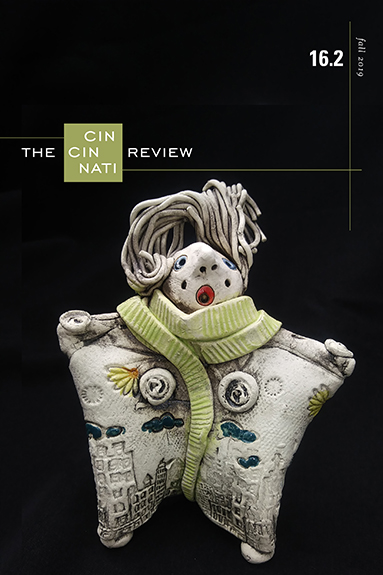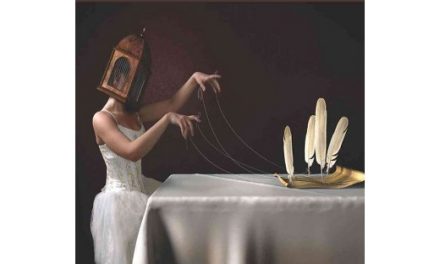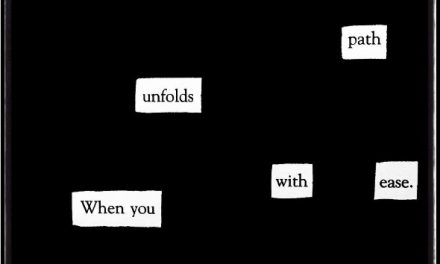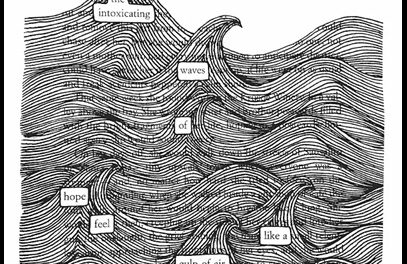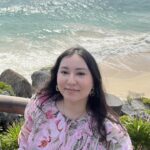My family feared white people. White people, after all, danced on our newly paved driveway, leaving gym-shoe footprints. White people threw rocks and rotten eggs at our windows. White people stole my family’s first big purchase, a ’72 Thunderbird that was found two months later—stripped—in a steakhouse parking lot off Cicero Avenue. White people were not yellow like us, and in this world, this private section we carved for ourselves, white people outnumbered us. They were everywhere with their whiteness, doing white things, playing white games, cooking white food, which by then I had begun to savor, especially the ketchupy meatloaf and anything concocted in a casserole dish. White people knocked on our Buddhist door with Bibles. White people rang us out at grocery stores, changed our oil, delivered our mail. “They are everywhere,” my mother would say, “like ants.” This thought petrified me, a boy of six or seven, trying to find my place in this part of the Chicago filled with white boys and girls who looked at me with tilted heads.
So it was a surprise when my mother announced that our family vacation that summer was to Duluth, Minnesota, to visit a bunch of white people in the whitest city of the whitest state. Even the sound of the state—Minnesota—conjured thoughts of white. Duluth, the brightest of whites. For the first time, we weren’t trekking to Florida to see my mother’s old friends from her nursing-school days in Bangkok or to the Wisconsin Dells’s “Indians” and water parks. We rented a Ford Aerostar and drove the many hours north during the hottest summer the Midwest had experienced in years, to stay with a white family in a white house.
On the drive there I asked my mother who these people were. I sat in the front seat, unbuckled, my feet dangling, as my father drove squinting at the rising sun. I didn’t understand why we weren’t heading south to see Mickey Mouse. I was fond of Mickey, though I never went on any of the rides at Disney because they scared me.
“Seeing good people,” my mother said.
“Are they Thai?” I asked.
My mother shook her head. “Farang,” she said. Foreigners. “Cao,” she said. White.
“How can you be white and good?”
“Not all,” said my mother. “Some white people are like Thai people. Like the Dunlaps.”
In the years to come, this would be the ultimate of my mother’s compliments. My white friends in high school and college were like Thai people, except the ones who smoked and drank, which were all of them. The white woman I married and later divorced was like a Thai girl. Her white family, a Thai family. But then, in that oversized car, I didn’t understand what my mother meant. I went to school with a ton of white kids, and none of them were Thai. How could you be white and Thai?
The outside landscape changed, the car leaving behind the flat fields of Illinois, beginning our sweep through hillier terrain. I lost myself in tall, dark grass and quivering leaves.
At the border of Minnesota, we stopped at a rest area still under construction. The day was gray, and the green was deep and thick, thicker than Illinois. I thought that this was a place where werewolves dwelled, somewhere in the belly of that green. My mother and father spread food on a picnic table and scooped jasmine rice into small Styrofoam bowls. I went to use the bathroom, half-finished, no sinks to wash hands, only a toilet with sparse toilet paper. Sitting on the seat, I noticed a hole above me, and through that hole, a construction worker on the roof staring. He didn’t stop staring. He stared the entire time I was in there. In the overcast light that backlit him, he was a ghost.
Minnesota was the land of ten thousand lakes. I spent most of the trip counting every creek, pond, lake we passed in the rental car. I could count only to fifty, so I started over and over again. When we pulled into the Dunlaps’ property, I counted the pond in front of a two-story colonial house. In each window a candle.
“Nineteen,” I said.
“We’re here,” my father said in Thai. He sighed, from the length of the drive, I’m sure, but also at the thought that for the next week and a half he would be sleeping in a foreign house with foreign people. My father liked to live his life his way, liked his food cooked in a particular manner, liked his bed he built from leftover wood at a lumberyard. He’d brought his golf clubs, and I knew I would see very little of him because he planned to spend most of his days on the links.
Before my mother opened the car door, she straightened my White Sox baseball cap and wiped smudges off my cheek. “From now on you can speak English. Speak English the whole time. Forget the rules. This week we speak English like we’re Americans. Okay, luke mai?”
I nodded, but the rules on our refrigerator stated I was to speak Thai at all times. Stated that I was Thai first and foremost.
“Speak English to me and Daddy, okay? We will speak English to you.”
I nodded again. I said, “Can we get ice cream?” in crisp English.
“Maybe later,” my mother said, twisting my nose.
“Cherries Jubilee,” my father said.
“Rainbow sherbet,” I said.
“Okay,” my mother said. “They’re waiting.”
Outside our car door was a white family, smiling and waving and ready for us.
. . .

